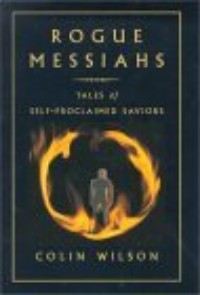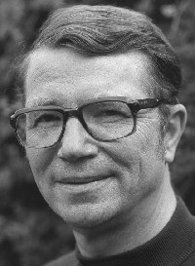
Rogue Messiahs
تأليف : Colin Wilson
النوعية : الفكر والثقافة العامة
In Rogue Messiahs, Colin Wilson compellingly recounts the stories and outrageous claims, acts, and abuses of 25 self-proclaimed messiahs who have arisen in the last 300 years. He uncovers the probable factors that turn earnest religious leaders, mystics, or well-intentioned cult leaders into violent, abusive, murderous, and paranoid rogue messiahs.
This gallery of spiritual fakers includes many familiar names and faces: David Koresh, leader of the Branch Davidians; Shoko Asahara, founder of the Aum Supreme Truth cult; Rev. Jim Jones; founder of the infamous Jonestown; Jeffrey Don Lundgren, Mormon con man and murderer; Ervil LeBaron and family, deranged cultist, prophets, and murderers; Rock Theriault, late twentieth-century French Canadian self-proclaimed messiah. Further, Wilson includes a study of others who achieved spiritual insight instead of destruction, and demonstrates that mayhem and benevolence are often two sides of the same coin.
These would-be messiahs, in Wilson's analysis, are all driven by a childish dream of absolute power. Almost always, they cross the line from inspiration to paranoia, and from the teaching to killing-genuine aspiration mixed with self-deception, says Wilson. This is an incisive review of the motives and madness of cult leaders, spiritual con men, and would-be saviors.
In Rogue Messiahs, Colin Wilson compellingly recounts the stories and outrageous claims, acts, and abuses of 25 self-proclaimed messiahs who have arisen in the last 300 years. He uncovers the probable factors that turn earnest religious leaders, mystics, or well-intentioned cult leaders into violent, abusive, murderous, and paranoid rogue messiahs.
This gallery of spiritual fakers includes many familiar names and faces: David Koresh, leader of the Branch Davidians; Shoko Asahara, founder of the Aum Supreme Truth cult; Rev. Jim Jones; founder of the infamous Jonestown; Jeffrey Don Lundgren, Mormon con man and murderer; Ervil LeBaron and family, deranged cultist, prophets, and murderers; Rock Theriault, late twentieth-century French Canadian self-proclaimed messiah. Further, Wilson includes a study of others who achieved spiritual insight instead of destruction, and demonstrates that mayhem and benevolence are often two sides of the same coin.
These would-be messiahs, in Wilson's analysis, are all driven by a childish dream of absolute power. Almost always, they cross the line from inspiration to paranoia, and from the teaching to killing-genuine aspiration mixed with self-deception, says Wilson. This is an incisive review of the motives and madness of cult leaders, spiritual con men, and would-be saviors.



